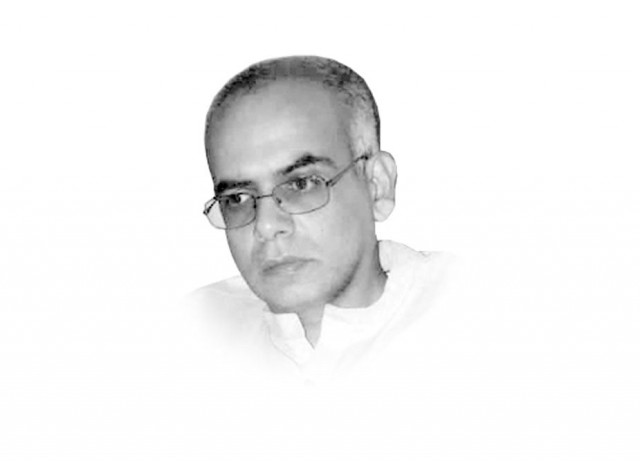Security versus human security
Achieving human security means more than the absence of conflict

The writer is a development anthropologist. He can be reached at ali@policy.hu
The emphasis on human security has led to the emerging norm of “conditional sovereignty” whereby the very right of states to be recognised as sovereign actors, exempt from external interference, has been tied to their ability to protect their own population from harm. The concept of “human security” provides a comprehensive, integrated, and people-centered approach for many interconnected issues.
Paying heed to human security concerns is no doubt, important. Today, we live in a world where conflicts are proliferating and seemingly intractable — lasting for years and causing human suffering on a mass scale. Battles waged in densely-populated cities are putting huge numbers of vulnerable civilians at risk. Non-state armed groups are waging asymmetric wars against the state and its civilians. Security partnerships and proxy wars, embedded in new Cold War geostrategic imperatives, amplify the scale of conflicts, and make them linger. New technologies in the form of “armed drones”, artificial intelligence, or cyber weapons, can be deployed to achieve lethal results and their use is both opaque and problematic. Meanwhile, insurgents and other non-state actors going after softer targets have caused a surge of targeted violence against aid workers, health facilities and schools. These varied conflicts disrupt humanitarian access, destroy critical infrastructure, and propel mass migrations.
These above conditions erode human security directly. There are other underlying structural causes of human insecurity, which are varied and deep-rooted. Human insecurity in the form of deprivation and marginalisation can also be generated by neo‐liberal globalisation, economic exploitation — often due to policies pursued by nations themselves — and by international agencies, propagating specific polices of economic growth.
Achieving human security means more than the absence of conflict. Extreme poverty and illiteracy, inadequate health, environmental degradation, internal conflict and forced displacement, and migration all pose interlinked human security challenges.
In 1994, the UNDP’s Human Development Report, “New dimensions of human security” aptly introduced a concept equating security with people rather than territories; with development rather than possession of armaments.
However, articulating human security does not mean that human security concerns can automatically be addressed. We still live in a world where conventional security concerns often trump the need to offer human-centric security. Critics point out how human security has become a buzzword and attempts to measure human security have produced a rather narrow understanding of what it means to live a “secure” life.
Even the UNDP’s definition of human security focuses less on how secure or insecure individual are, and more on how states perform according to the standard of human security via notions such as “good governance”. Such benchmarks have also reinforced the idea of the state as the main focal point of international security governance.
Achieving human security means recognizing that security is more than the absence of conflict, and that the international community and specific institutions which aim to highlight human security concerns, actively prevent injustices and ensure greater equity. Some tangible measures for this would include deflecting money from military expenditures to improving peoples’ lives. It would also imply progressively taxing the richest tenth of the world population to address global poverty and inequality. These are tough measures to implement given the vested interests of the powerful, and the dominance of realpolitik worldviews, due to which military might is still the predominant criteria for gaining recognition in our hierarchical world order.
Published in The Express Tribune, August 2nd, 2019.
Like Opinion & Editorial on Facebook, follow @ETOpEd on Twitter to receive all updates on all our daily pieces.
















COMMENTS
Comments are moderated and generally will be posted if they are on-topic and not abusive.
For more information, please see our Comments FAQ